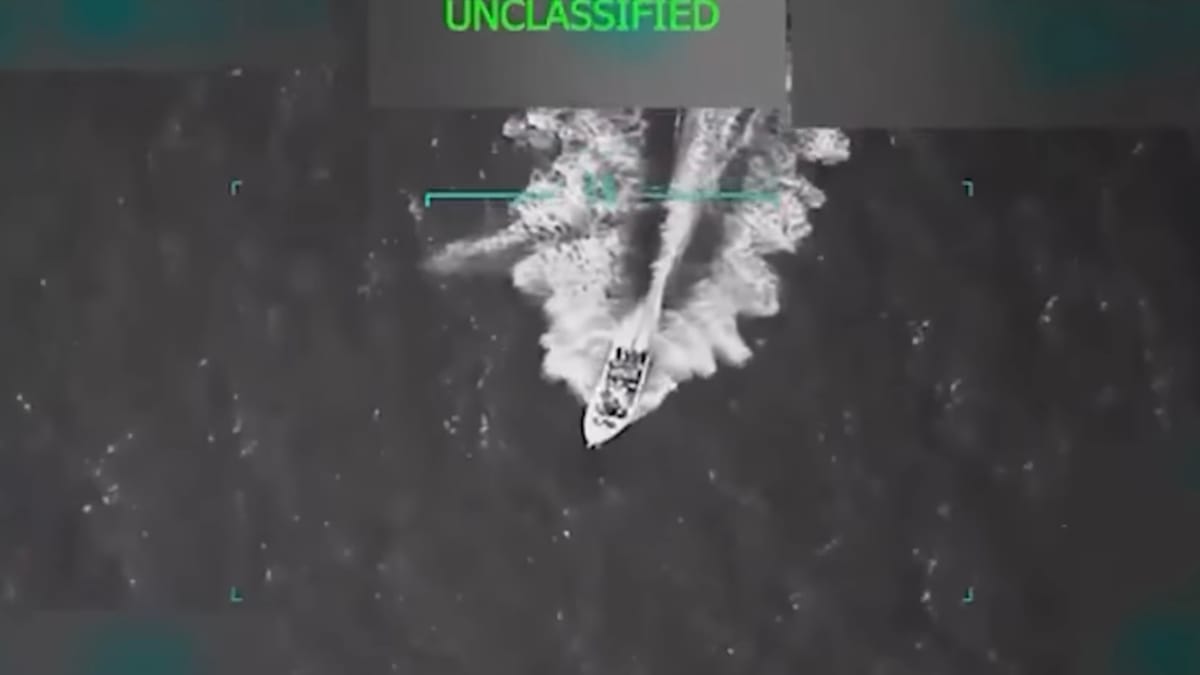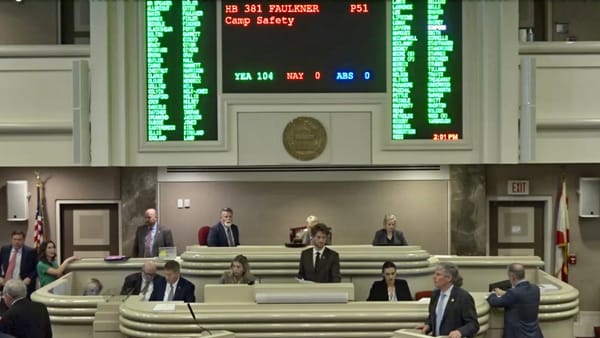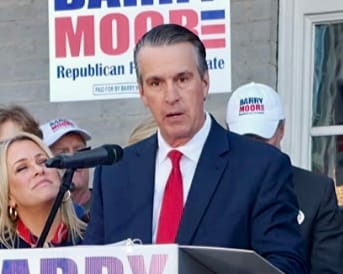Alabama Joins Multi-State Coalition Backing President Trump’s Crackdown on Cartel Drug Boats
16 State AGs support actions as constitutional, but questions re: due process and the specter of Obama’s “disposition matrix” linger

Alabama Attorney General Steve Marshall has announced that he is joining a coalition of 16 states in support of President Donald Trump’s recent initiative to confront drug-cartel maritime operations that are ending up on American shores. According to the coalition, the ongoing flow of illicit narcotics is sharply driving up violent crime, threatening law-enforcement personnel and communities, and imposing a heavy burden on the nation’s public-health system.
In their joint statement, the Attorneys General assert that the President is acting squarely within his constitutional role as Commander-in-Chief to defend U.S. citizens and interests. They have also called on Congress to step up and address the broader root causes and gaps in law-enforcement and border security.
“As a nation, we are at a critical point where bold and decisive action is necessary to stop the relentless flow of illegal drugs brought in by dangerous cartels. President Trump’s commitment to protecting Americans means peace through strength,” Marshall said. “I am extremely proud of the President for taking a strong stand and targeting cartel operations. This is exactly the kind of strategic reforms our country deserves.”
In a formal letter to President Trump and Secretary of War Pete Hegseth, the group points out that during fiscal year 2024, U.S. Customs and Border Protection (CBP) seized nearly 22,000 pounds of fentanyl smuggled across the border—an amount the coalition estimates would have been enough to kill the entire U.S. population fourteen times over. (Ed. Note: the accuracy of this estimate is unverifiable, as the LD 50 of fentanyl—the Lethal Dose in 50% of subjects—in humans is unknown.) They also note that fentanyl deaths in the U.S. now rival the total number of American casualties in World War II. The Attorneys General say the same narcotics trade has fueled gang activity, human trafficking and organized retail crime, and significantly contributed to rising addiction, overdoses and infectious-disease spread.
Joining Alabama in signing the Georgia-led brief are the Attorneys General of Arkansas, Florida, Kansas, Kentucky, Louisiana, Mississippi, Montana, North Dakota, Ohio, South Carolina, South Dakota, Texas, Utah and West Virginia.
While the current coalition frames the President’s actions as a legitimate exercise of national-defense powers, it is worth noting how past administrations have similarly claimed wide executive authority—and how those claims have drawn Republican objections regarding due process and oversight.
Under President Barack Obama, the U.S. developed what critics called a “kill list” or “disposition matrix”—a database of suspected terrorists targeted for capture or killing, including some U.S. citizens abroad. At that time, legal-rights groups raised serious concerns that Americans could be placed on the list without meaningful judicial review, in effect allowing the executive branch to act as judge, jury and executioner.
Republican lawmakers pressed this issue sharply. For example, in 2013, Senator Rand Paul (R-KY) filibustered the nomination of John Brennan to be CIA Director, demanding an explicit assurance that drones would not be used to kill U.S. citizens on American soil. Additionally, members of both parties challenged the Obama administration for failing to clearly define the legal basis for its targeted-killing policy.
For Republicans concerned with the rule of law and limited executive power, the objection was not the use of force per se—but the lack of transparent legal process and absence of meaningful checks when the President acted unilaterally.
The current initiative led by President Trump, and supported by the coalition of State’s AGs differs in important ways from the drone-strike regime of the Obama years—but it also raises overlapping questions about executive power at the margins.
The Trump-era action is declaredly focused on drug-cartel maritime incursions and flow of fentanyl into the country. It is framed as a national-security issue, but arguably more akin to border-security and law-enforcement rather than remote counter-terrorism strikes abroad. The authorities cited stress the President’s Commander-in-Chief role and suggest work with States and Congress; from that perspective, they seek broader legitimacy via State-coalition backing.
Both cases invoke expansive claims of executive authority. In the Obama era, the notion that the President could order lethal operations against U.S. citizens abroad without court oversight was a flashpoint. Under Trump, although not explicitly about lethal force against U.S. citizens, the bundling of national-defense action with law-enforcement raises questions about where the line between military and policing is drawn.
Republican concern about due process remains relevant. Although the AG’s press release does not mention targeted killings or signature strikes, the announcement of “strong stand and targeting cartel operations” via military or military-style action invites scrutiny: Are standard criminal-justice safeguards being bypassed? Is there clear congressional oversight?
The precedent of unlimited executive discretion in security matters—as in the Obama “kill list”—remains a caution. While the drug-cartel threat is very real, the lack of transparent process invites the same structural tension between preserving national security and safeguarding civil liberties.
Critics of the current strategy warn that treating cartel drug boat interdictions with military-style operations risks shifting from conventional law enforcement toward a model of executive action that bypasses normal safeguards. One recent analysis noted that the use of “a military approach to drug busts” upends established U.S. policy and raises questions about whether the actions are properly aligned with policing or warfighting.
Another report pointed to proposed “boat strikes” and warship deployments in regions tied to drug-trafficking networks and suggested they raise “questions about [the] goals” of the initiative—notably whether the President is engaging in direct operational action abroad without full transparency or congressional oversight.
While the AG’s coalition strongly supports what it calls bold action against cartel networks, the comparison to past administrations’ use of executive force—and the Republican objections then about due process—signals that vigilance over legal boundaries is still warranted.
Several questions remain unanswered: Will Congress provide clear authorisation and oversight? Will the administration ensure that constitutional and criminal-law safeguards apply, especially if the operations venture into grey zones of military or paramilitary action?
Most importantly, given other moves by the military in the Caribbean, are these boat strikes a prelude to strikes within Venezuela itself? If so, has this coalition endorsed, if only indirectly, yet another in America’s series of Forever Wars?
The Attorney General’s letter to the President and SecWar may be read HERE.




